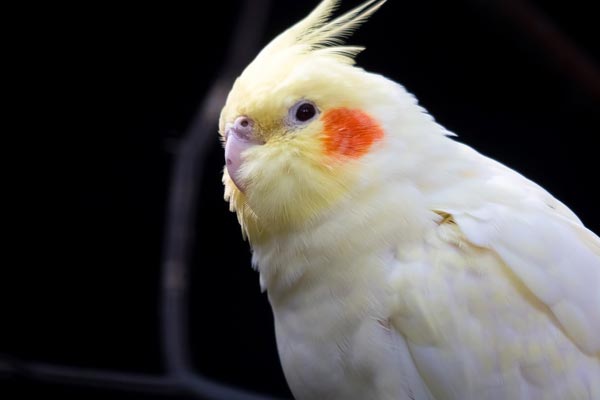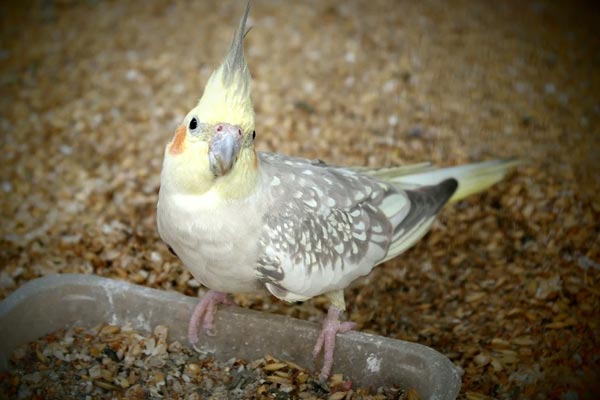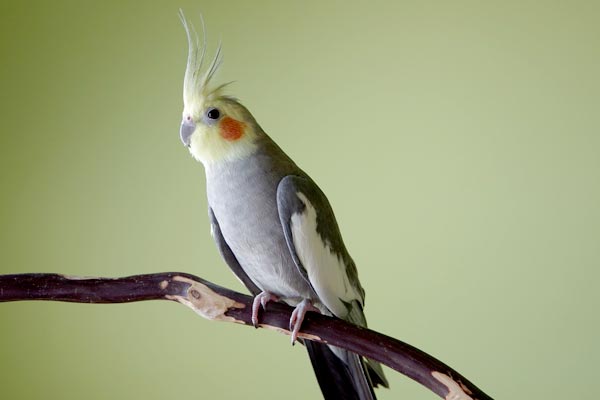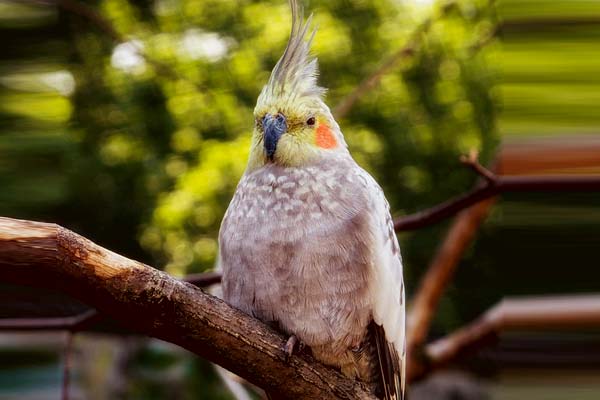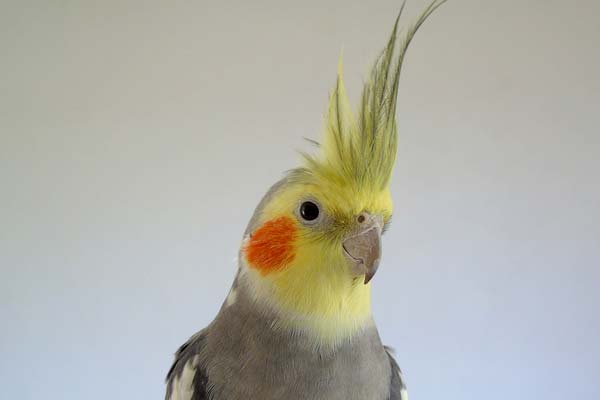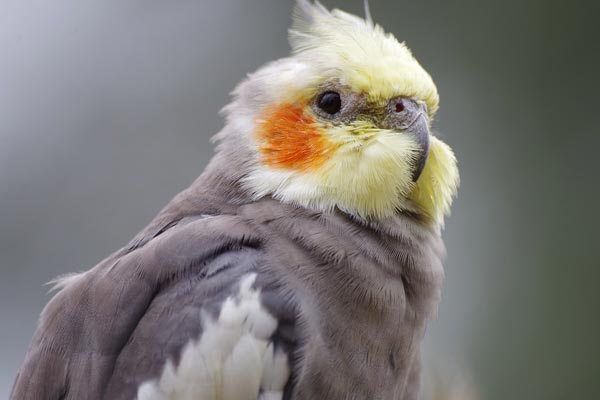How Do Cockatiels Sleep: A Guide to Your Pet’s Rest Time
Cockatiels need proper sleep to stay healthy. They usually sleep on perches, with their eyes closed and heads tucked behind their wings. Sleep positions may vary based on comfort and security.
Factors like cage size, environment, and temperature affect sleep patterns. Providing a comfortable and safe sleeping space is essential.
Understanding these factors and promoting healthy sleep habits ensures your cockatiel gets adequate rest. Maintain a quiet space, monitor temperature, and adjust the lighting to support their sleep.
How Do Cockatiels Sleep?
Cockatiels are known for their unique sleeping habits. They are light sleepers and do not go into a deep state of sleep at night. Cockatiels usually sleep 10-12 hours daily and prefer to sleep at night when it is dark. They are diurnal birds and are active during the day.
Cockatiels usually sleep on a perch keeping one leg up, and their head tilted 180 degrees. They tuck their head behind a wing for protection and warmth. This sleeping position is common among cockatiels and is their natural way of sleeping.
Resting on one leg is the most common position for cockatiels, and it is their way of protecting themselves from predators in the wild. Cockatiels keep this sleeping position in captivity as well.
Certain cockatiels tend to be restless during sleep, while others remain stationary. Cockatiel owners have noted varied sleeping locations, with some birds resting on the ground and others sleeping within their cages.
However, letting your cockatiel sleep on the ground is not recommended, as it can be dangerous.
Interestingly, some cockatiels may sleep with one eye open. This is because they are always alert for predators, even when sleeping. Cockatiels are known for their strong feet and can sleep standing on one leg without any problems. They can also sleep on two legs if they feel comfortable.
Providing your cockatiel with a consistent sleep schedule is essential to ensure uninterrupted sleep. Cockatiels are prone to night frights, which sudden noises or movements can cause. To prevent night frights, it is recommended to cover your cockatiel’s cage with a light sheet or blanket at night.
Factors Affecting Cockatiel Sleep
Like other birds, Cockatiels require adequate sleep to maintain their health and well-being. However, several factors can affect their sleep quality and quantity. Here are some of the critical factors that can impact cockatiel sleep:
Cage Setup and Environment
Cockatiels need a comfortable and secure environment to sleep well. The cage should be spacious enough for them to move around and stretch their wings. The cage should also be placed in a quiet and peaceful area of the house, away from disturbances or loud noises.
Light Exposure and the Use of a Nightlight
Cockatiels are sensitive to light and need a consistent light and dark cycle to regulate their sleep-wake cycle. It is best to provide them with 10-12 hours of darkness each night to allow them to get uninterrupted sleep.
Some owners prefer to use a nightlight to provide a dim light source for their birds. A nightlight can be helpful, but it should be a little light as it can disrupt their sleep.
Noise Levels
Cockatiels are social birds and enjoy the company of their owners. However, loud noises or disturbances can disrupt their sleep and cause stress. It is essential to keep the noise levels down during their sleeping hours to ensure they get a good night’s rest.
Temperature
Originating from Australia, cockatiels are accustomed to warmer climates. They can withstand various temperatures, but extreme conditions impact their sleep quality. Ensuring a cozy sleeping environment with balanced temperatures, neither too hot nor too cold, is crucial.
Sleeping Habits
Cockatiels typically sleep standing on one leg, with their head tucked under their wing. They may also sleep with both eyes closed or with one eye open. These sleeping habits are normal and should not be a cause for concern.
Wild Cockatiels vs. Captivity
Wild cockatiels sleep in trees or other natural habitats. In captivity, they need a comfortable and secure sleeping area to feel safe and sleep well. Providing a suitable sleeping environment is crucial to ensure they get adequate rest.
Common Sleep Issues and Solutions
Cockatiels, like humans, need adequate sleep to stay healthy and happy. However, they can experience sleep issues that may affect their overall well-being. Here are some common sleep issues and solutions for cockatiels:
Night Frights
Night frights are sudden episodes of panic that occur at night. Loud noises, sudden movements, or changes in lighting can cause them. A quiet and safe sleeping environment for your cockatiel is essential to prevent night frights. Covering the cage with a light blanket can also help reduce external stimuli.
Sleep Deprivation
Sleep deprivation can lead to mood swings, weakened immune systems, and nutritional imbalances. To prevent sleep deprivation, make sure your cockatiel gets enough sleep. Cockatiels need 10-12 hours of sleep per day. It’s essential to create a calm, dark environment for sleeping and avoid loud noises or sudden movements that could interrupt their sleep.
Excessive Egg-laying
Excessive egg-laying can be a sign of sleep deprivation or hormonal imbalances. To prevent excessive egg-laying, provide a quiet, dark sleeping environment for your cockatiel. Also, make sure your cockatiel gets enough exercise and a balanced diet.
Nap Time
Cockatiels may take naps during the day, especially if they are young or old. Naps can range from a few minutes to a few hours. Providing a comfortable and safe place for your cockatiel to nap can help them feel more relaxed and secure.
Cage Cover
Covering the cage with a light blanket can help reduce external stimuli and provide a quiet and dark sleeping environment for your cockatiel. However, ensure the cover is manageable and relaxed, which can cause injury or stress.
Safety
Cockatiels need a safe and secure sleeping environment to prevent injuries or accidents. Provide a sturdy perch and ensure no sharp edges or loose wires are in the cage.
Baby Position
Cockatiels may sleep in the baby position when they tuck their head under their wing and sleep on their stomach. This position is normal and indicates that your cockatiel feels safe and secure.
Conserve Energy
Cockatiels conserve energy by sleeping on one leg and using the tendon-lock mechanism. This allows them to save energy and reduce the need for constant muscle contractions.
Beak Grinding
Beak grinding is a sign that your cockatiel is relaxed and comfortable. It is normal behavior and indicates that your cockatiel is getting enough sleep.
Quiet Place
Cockatiels need a quiet and peaceful sleeping environment to get adequate sleep. Avoid placing their cage near TVs or other sources of noise.
Exercise and Feeding
Cockatiels need regular exercise and a balanced diet to stay healthy and happy. Ensure your cockatiel gets enough exercise and a variety of foods to prevent sleep issues.
Movement
Cockatiels may move around during sleep, especially if they are dreaming. This is normal and indicates that your cockatiel is getting enough sleep.
Old Cockatiels
Elderly cockatiels might need extra sleep and rest compared to their younger counterparts. Make sure to offer your aging feathered friend a snug and safe sleeping space.
Cranky Behavior
Sleep deprivation can cause cranky behavior in cockatiels. Make sure your cockatiel gets enough sleep to prevent mood swings and irritability.
Tips for Promoting Healthy Sleep Habits
To ensure that your cockatiel gets the rest it needs, there are a few things you can do to promote healthy sleep habits.
Providing a Comfortable Sleeping Perch
Cockatiels usually sleep on their perches, so it’s crucial to provide a comfortable perch for them to sleep on. The perch should be the right size for your bird and made of a material that is easy to grip.
A too-small or too-large perch can cause discomfort and disrupt their sleep. Additionally, ensure the perch is clean and free from droppings or debris.
Establishing a Consistent Sleep Schedule
Cockatiels thrive on routine, so it’s crucial to establish a consistent sleep schedule. Keep your bird’s sleep schedule as close to its natural cycle as possible. This means providing them with 10-12 hours of sleep per day, combining night and daytime naps.
Creating a Quiet and Dark Environment
Cockatiels are light sleepers, so creating a quiet, dark place is crucial. Covering their cage with a light blanket or towel can help block out any light and reduce noise. Also, avoid placing their cage in a high-traffic area or near loud appliances, such as a TV or washing machine.
Monitoring and Adjusting Temperature as Needed
Cockatiels are sensitive to temperature changes, so monitoring and adjusting the temperature in their sleeping area is essential. The ideal temperature range for cockatiels is between 65-80 degrees Fahrenheit. If the temperature drops below this range, consider providing a heat source, such as a heated perch or a heat lamp.
Maintaining a Healthy Bird
A healthy bird is more likely to have healthy sleep habits. Ensure your cockatiel receives a balanced diet, regular exercise, and routine veterinary care. Additionally, monitor their behavior and mood for signs of stress or illness, as these can disrupt their sleep.
Breeding
If you have breeding cockatiels, providing them with a separate breeding cage is essential. This cage should have a nesting box and a different perch for sleeping. Additionally, provide a comfortable and quiet environment for the breeding pair, as stress can disrupt their sleep and breeding habits.
Conclusion
Cockatiels need a comfy, safe sleeping environment for their health and well-being. Since they’re light sleepers, creating a quiet, dark space for them to rest is essential. Key tips include:
- Darkening their sleeping area.
- Avoiding loud noises.
- Providing a comfortable perch.
- Covering their cage with a light blanket.
This ensures a well-rested and happy cockatiel.

